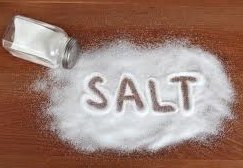
WHO issues new guidance on dietary salt and potassium
Singapore: Adults should consume less than 2,000 mg of sodium, or 5 grams of salt, and at least 3,510 mg of potassium per day, according to new guidelines issued by the WHO. A person with either elevated sodium levels and low potassium levels could be at risk of raised blood pressure which increases the risk of heart disease and stroke. Currently, most people consume too much sodium and not enough potassium.
Sodium is found naturally in a variety of foods, including milk and cream (approximately 50 mg of sodium per 100 g) and eggs (approximately 80 mg/100 g). It is also found, in much higher amounts, in processed foods, such as bread (approximately 250 mg/100 g), processed meats like bacon (approximately 1,500 mg/100 g), snack foods such as pretzels, cheese puffs and popcorn (approximately 1,500 mg/100 g), as well as in condiments such as soy sauce (approximately 7,000 mg/100 g), and bouillon or stock cubes (approximately 20,000 mg/100 g).
Potassium-rich foods include: beans and peas (approximately 1,300 mg of potassium per 100 g), nuts (approximately 600 mg/100 g), vegetables such as spinach, cabbage and parsley (approximately 550 mg/100 g) and fruits such as bananas, papayas and dates (approximately 300 mg/100 g). Processing reduces the amount of potassium in many food products.
"Elevated blood pressure is a major risk for heart disease and stroke - the number one cause of death and disability globally," says Dr Francesco Branca, director, WHO's Department of Nutrition for Health and Development. "These guidelines also make recommendations for children over the age of two. This is critical because children with elevated blood pressure often become adults with elevated blood pressure."
The guidelines are an important tool for public health experts and policymakers as they work in their specific country situations to address noncommunicable diseases such as heart disease, stroke, diabetes, cancer and chronic respiratory diseases.




